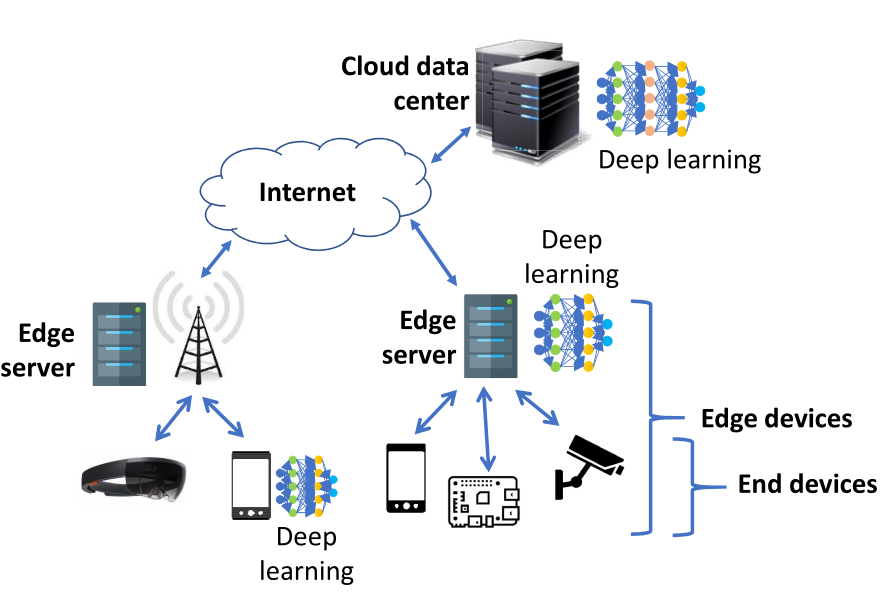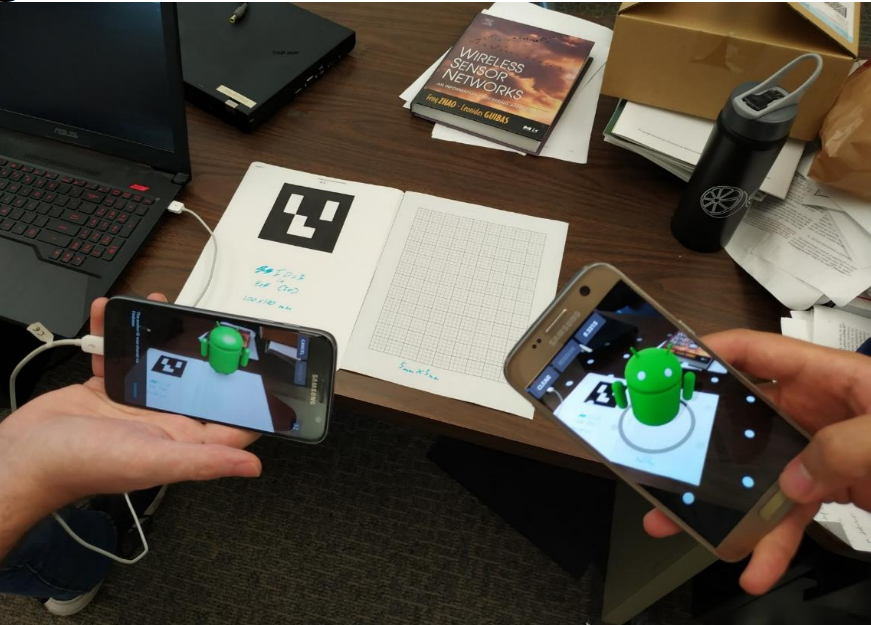Research
Security of mixed reality systems

As mixed and virtual reality systems gain prominence, new threats to their security and privacy also arise. It is important to understand these newly emerging threat models and their possible defenses. In this space, I am interested in system-level risks such those as arising from sensors and performance counters, as well as application-level risks such as those arising from the interactions between multiple users.
Related publications: USENIX Security’24 (preprint), USENIX Security’23, USENIX Security’23,
Machine learning with edge computing

The goal is to make powerful machine learning methods such as deep learning run quickly on mobile devices. My approach leverages nearby edge computing and adapts the mobile device’s configuration based on feedback signals from the machine learning. This enables mobile devices to satisfy application requirements while adapting to system dynamics, such as varying network conditions or difficult-to-classify samples. I am also recently interested in generative AI on mobile devices.
Related publications: ACM SIGCOMM Workshop’23, NeurIPS’21, Proc. IEEE’19, IEEE INFOCOM’18
Mobile augmented and virtual reality

The goal is to improve system performance of augmented reality and virtual reality on mobile devices, especially when multiple users participate in the same shared experience. This involves understanding where performance bottlenecks occur (e.g., in terms of latency, energy, bandwidth), and optimizing the application or network behavior to improve performance. This makes AR/VR platforms more usable and provides a solid foundation for applications to be built on top. I am also recently interested in AR/VR security and applications in healthcare.
Related publications: ACM MMSys’23 (best student paper), ACM SenSys’22, ACM CoNEXT’22, ACM CoNEXT’20, IEEE SECON’20 (best paper finalist), IEEE SECON’19 (best paper finalist)
Economics of cellular networks

My goal is to understand how different data pricing structures impact the behavior of mobile users and network operators. My approach involves mathematically modeling real-world pricing schemes and using optimization tools to analyze the resulting behaviors of users and network operators, provide suggestions on their optimal actions. I also apply related mathematical tools (optimization) to traditional networking problems.
Related publications: IEEE Trans. Networking’20

 MENU
MENU 